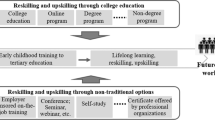Abstract
The new industrial paradigm Industry 4.0, or smart industry, is at the core of contemporary debates. The public debate on Industry 4.0 typically offers two main perspectives: the technological one and the one about industrial policies. On the contrary, the discussion on the social and organizational effects of the new paradigm is still underdeveloped. The article specifically examines this aspect, and analyzes the change that workers are subject to, along with the work organization, smart digital factories. The study originates from an empirical survey conducted by the author together with a multidisciplinary research group between 2014 and 2015 in some of the largest Italian factories.
In particular, the article analyzes the links between digital society, digital culture and Industry 4.0, focusing on the issue of people’s participation in the process of change, within a specific case study from the railway sector.
Many elements of the Industry 4.0 paradigm are widespread outside the factory, in society; they are not only technological elements but also cultural. One of the key aspects of the analysis is the question of participation and the “person-centered” culture. The subject is addressed critically by presenting both the RE-personalization processes (from the centrality of the users–consumers in consumption practices to the centrality of the worker in the work paradigm 4.0) and the new processes of DE personalization caused by digital automation.
Similar content being viewed by others
References
Arand K, Zeeman L, Scholes J, Morales AS (2012) The resilient subject: exploring subjectivity, identity and the body in narratives of resilience. Health 16(5):548–563
Atkinson W (2010) Class, individualization and late modernity: in search of the reflexive worker. Palgrave Macmillan, Basingstoke
Beck U (1992) Risk society: towards a new modernity. Sage, London
Beck U, Giddens A, Lash S (1994) Reflexive modernization. Polity Press, Cambridge
Bower JL, Christensen CM (1995) Disruptive technologies: catching the wave. Harvard Bus Rev 73(1):43–53
Castells M (1997) The power of identity. Blackwell, Oxford
Cherns A (1976) The principles of sociotechnical design. Hum Relat 29(8):783–792
Dore R (1987) Taking Japan seriously. StanfordUniversity Press, Palo Alto
Dujarier MA (2008) Le travail du consommateur. La Découverte, Paris
European Commission (2010) Factories of the future PPP. strategic multi-annual roadmap. Publications Office of the European Union, Luxembourg
European Commission (2013) Factories of the future: Multi-annual roadmap for the contractual PPP under Horizon 2020. Luxembourg
Germany’s Federal Government (2014) The new high-tech strategy innovations for Germany. BMBF, Berlin
Germany’s Federal Ministry of Education and Research (2010) Ideas. Innovation. Prosperity. High-tech strategy 2020 for Germany. BMBF, Berlin
Gouvernemente Française (2015) Industrie du futur. Réunir la Nouvelle France Industrielle
Governo italiano, Ministero dello sviluppo economico (2016) Piano Nazionale Industria 4.0. Ministero dello sviluppo economico, Roma
Huws U (2016) Platform labour: sharing economy or virtual wild West? J Progres Econ:24–27
Jenkins H (2006) Convergence culture: where old and new media collide. New York University Press, New York
Kotler P (1989) From mass marketing to mass customization. Plan Rev 17(5):10–13
Kumar A (2007) From mass customization to mass personalization: a strategic transformation. Int J Flex Manuf Syst 19:533
Lee MK, Kusbit D, Metsky E, Dabbish L (2015) Working with machines: the impact of algorithmic and data-driven management on human workers. In: CHI 2015, proceedings of the 33rd annual ACM conference on human factors in computing systems, ACM, New York, pp 1603–1612
Magone A, Mazali T (eds) (2016) Industria 4.0. Uomini e macchine nella fabbrica digitale. Guerini e Associati, Milano
Manovich L (2001) The language of new media. MIT Press, Cambridge
Manovich L (2009) The practice of everyday (media) life: from mass consumption to mass cultural production? Crit Inq 35(2):319–331
Middlemiss L (2014) Individualised or participatory? Exploring late-modern identity and sustainable development. Environ Polit 23(6):929–946
Mumford E (2003) Redesigning human systems. Idea Group, Hershey
Petrick IJ, Simpson TW (2013) 3D printing disrupts manufacturing: how economies of one create new rules of competition. Res Technol Manag 56:12–16
Ramsay H (1977) Cycles of control: worker participation in sociological and historical perspective. Sociology 11(3):481–506
Scholz T (ed) (2013) Digital labor. The internet as playground and factory. Routledge, NewYork
Sennett R (1998) The corrosion of character: the personal consequences of work in the new capitalism. Norton & Co, New York
Sennett R (2008) The craftsman. Yale University Press, New Haven
Silverstone R (ed) (2005) Media, technology and everyday life in Europe. Ashgate, Aldershot
Silverstone R, Hirsch E (eds) (1992) Consuming technologies, media and information in domestic spaces. Routledge, London
Steiner C, Dixon W (2012) Automate this: how algorithms came to rule our world. Portfolio, New York
Toffler A (1980) The third wave. William Morrow & Company, New York
Tseng MM, Hu SJ (2014) Mass customization. CIRP Encycl Prod Eng:836–843
Wellman B (2011) Community networks online. In: Keeble L (ed) The rise of networked individualism. Taylor & Francis, London
Womack JP, Jones DT, Roos D (1990) The machine that change the world: the story of lean production. Simon & Schuster, New Jersey
Acknowledgements
The results presented in this article are part of an empirical research conducted by the research center Torino Nord Ovest, between January 2014 and December 2015, commissioned by IAL Nazionale, FIM CISL Piemonte, Istituto Superiore Mario Boella and also financed with the support of the Fondo Fapi. This research could not be conducted without the help of various managers in production, engineering, innovation, human resources and industrial relationships who have welcomed us to their plants and guided us through them giving us in-depth explanations of the processes.
Author information
Authors and Affiliations
Corresponding author
Rights and permissions
About this article
Cite this article
Mazali, T. From industry 4.0 to society 4.0, there and back. AI & Soc 33, 405–411 (2018). https://doi.org/10.1007/s00146-017-0792-6
Received:
Accepted:
Published:
Issue Date:
DOI: https://doi.org/10.1007/s00146-017-0792-6




